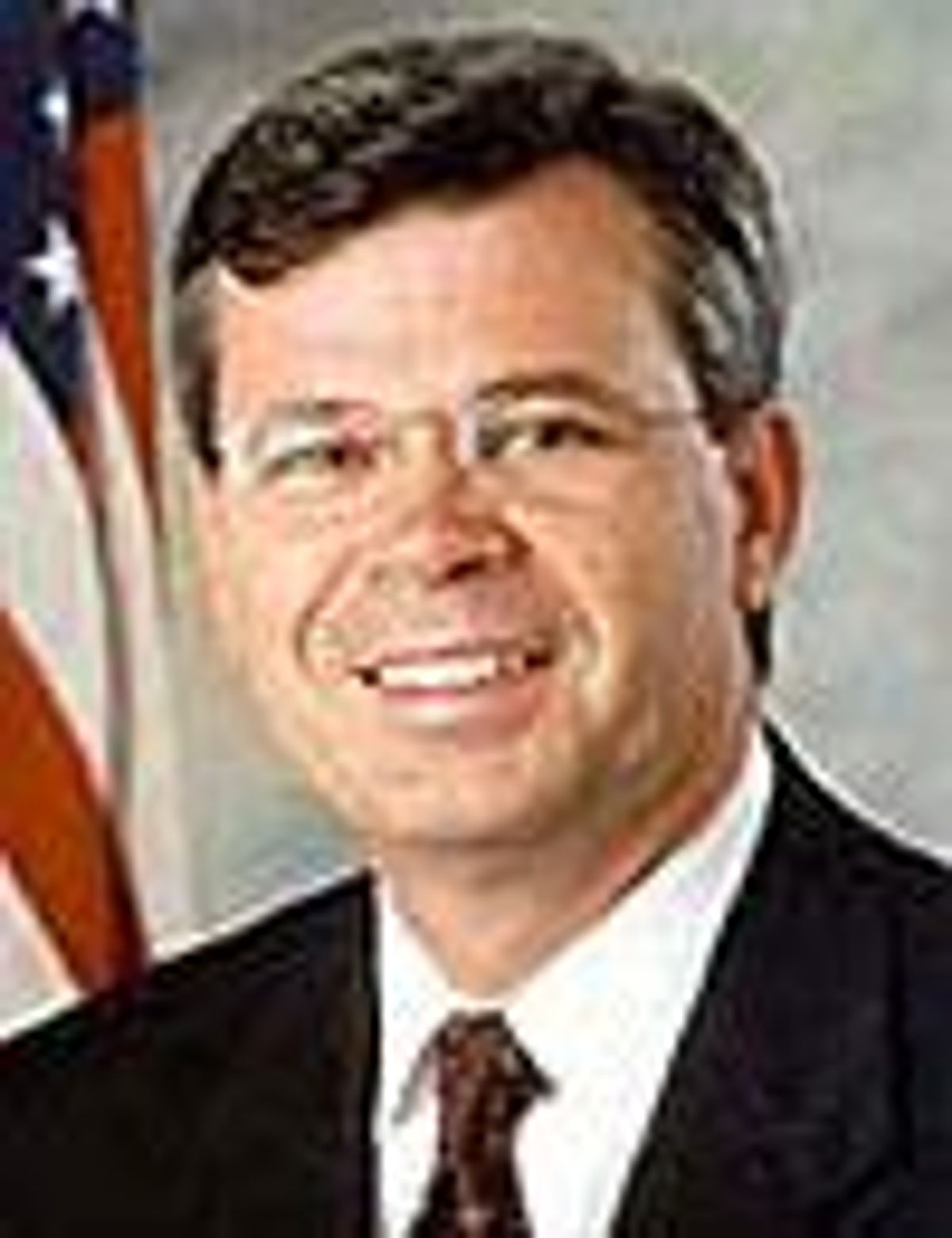Gay activists and
some business leaders say they're concerned that recent
actions by Kentucky governor Ernie Fletcher's administration
and the state general assembly in Frankfort could
be construed as antigay and drive away businesses
interested in coming to the state. "Bigotry is bad for
business," said Alan Hawse, vice president of information
technology for the California-based company Cypress
Semiconductor, which has offices in Lexington.
Hawse said two decisions this month, one by
Fletcher to remove wording from an executive order
that would protect gay employees from discrimination
and another by the general assembly to give $10 million to
a private university that expelled a student for being gay,
send the wrong message to potential investors. "We go
from a backwater state trying to attract business to a
backwater, bigoted state trying to attract business,"
said Hawse.
The general assembly set aside $10 million in
its budget for a pharmacy school at the University of
the Cumberlands. The small Baptist school in
Williamsburg recently expelled sophomore Jason Johnson after
he revealed on a Web site that he is gay. College
officials have said a university policy allows them to
expel a student who "promotes sexual behavior not
consistent with Christian principles," including
homosexuality. Fletcher, who on Monday is expected to
announce which state projects in the budget will be
targeted for line-item vetoes, could still decide
against giving the money to the University of the Cumberlands.
Brett Hall, a spokesman for Fletcher, dismissed
Hawse's concerns and said Fletcher's administration
wouldn't discriminate against gay or lesbian job
candidates and employees. "We don't ask people if they're
gay, and how would we know?" Hall said. "I can't
imagine it would be an issue at all."
Nevertheless, Fletcher drew the ire of gay
activists when on April 11 he removed sexual
orientation and gender identity from the list of protected
characteristics covered by the state's
antidiscrimination laws. Kentucky is one of almost two
dozen states that have no statewide policies or laws
to protect gay workers.
"It has an overarching impact on the state in
terms of attracting tourism, attracting conventions,
and attracting businesses that want to make their home
here," said Christina Gilgor, executive director of
the Kentucky Fairness Alliance.
Still, some Kentucky businesses are making an
effort for a more diverse workplace. Lexington-based
Lexmark International allows employees to join
networking groups like the Gay/Straight Alliance of Lexmark
Employees. Lexmark is also among the growing list of
companies that offer benefits to partners of gay and
lesbian employees.
"Diversity in all of its definitions continues
to be a key focus in our recruitment efforts," Lexmark
spokesman Tim Fitzpatrick said in a statement. "[It
is] also a consideration in succession planning
because we recognize diversity as a strength that will help
us compete more effectively in a global marketplace."
Several cities in the state, including Lexington
and Louisville, have adopted fairness ordinances that
protect gays from discrimination. An attempt to add a
constitutional amendment that would repeal the
ordinances was shot down in the state senate.
Gary Gates, a researcher for the sexual
orientation policy group Williams Institute at the
University of California, Los Angeles, said U.S.
corporations are showing more interest in diversity and
tolerance. "If you believe that the market is what
rules in this world, all the trends in corporate
America say that increasing amounts of policies that
promote diversity are good for the bottom line," Gates said.
(AP)


















































































Viral post saying Republicans 'have two daddies now' has MAGA hot and bothered